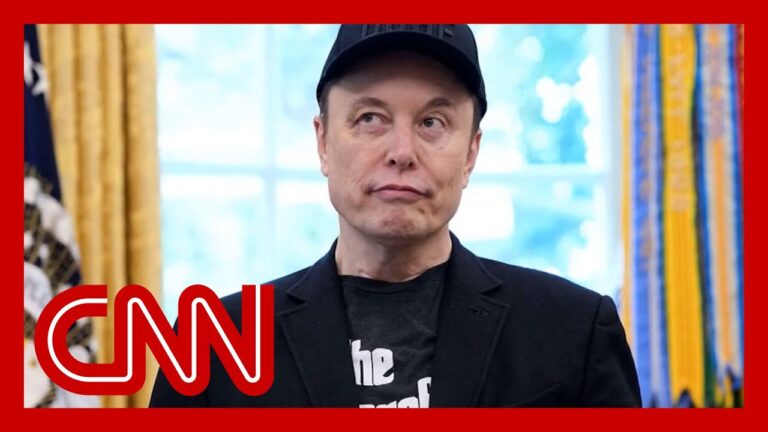Video at the bottom!
Former President Donald Trump and billionaire Elon Musk are embroiled in a heated feud, marked by threats of political retribution and public statements regarding government subsidies. Trump suggested that he could defund Musk’s major companies and even deport Musk, who has had a significant amount of federal support for his ventures like Tesla and SpaceX. This tension escalated after Musk threatened to fund primary campaigns against any member of Congress who supported Trump’s proposed infrastructure bill, which he criticized as excessive spending.
Katie Drummond from Wired and Ryan Mack, a New York Times reporter who has covered Musk, appeared to discuss the implications. Drummond emphasized that Musk’s companies heavily depend on federal contracts and subsidies, asserting that Trump holds the upper hand in this power dynamic. Although Musk has significant influence due to his contracts with the U.S. government, including major projects with NASA, his recent confrontational stance against Trump raises questions about his motivations and the potential consequences.
Mack pointed out Musk’s tendency to engage through social media, where he often expresses his emotions rather than sticking to rational calculations regarding his relationship with Trump. Both analysts agreed that Musk’s ambitions for political influence, including his speculation about forming a new political party, come with risks. Musk’s statements suggest that he feels entitled to challenge Trump while seeking to maintain a firm grip on government support for his companies.
The broader context of these exchanges involves Musk’s frustration over budgetary policies and electric vehicle mandates, while Trump distances himself from fiscal responsibility, preferring to finance projects through credit. The political landscape is complicated by Musk’s past desire to collaborate with Trump, which now seems at odds with their current rivalry.
Furthermore, there are implications for Musk’s business ventures, as investors express concern over his distraction from critical projects, such as Tesla’s development of autonomous vehicles. Meanwhile, Trump has also directed his frustration towards Federal Reserve Chair Jerome Powell, urging him to cut interest rates and blaming Powell for economic challenges, including high inflation linked to tariffs.
In summary, the ongoing feud between Trump and Musk illustrates significant power struggles at the intersection of business and politics, shaping the future of both men’s respective interests and potential alliances.


